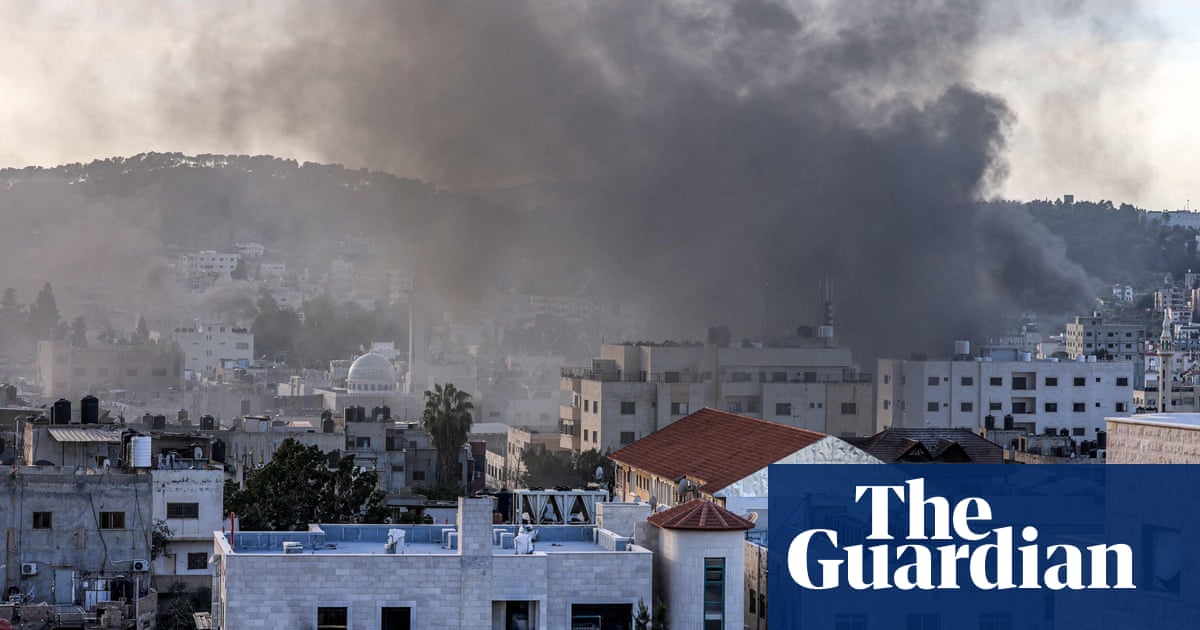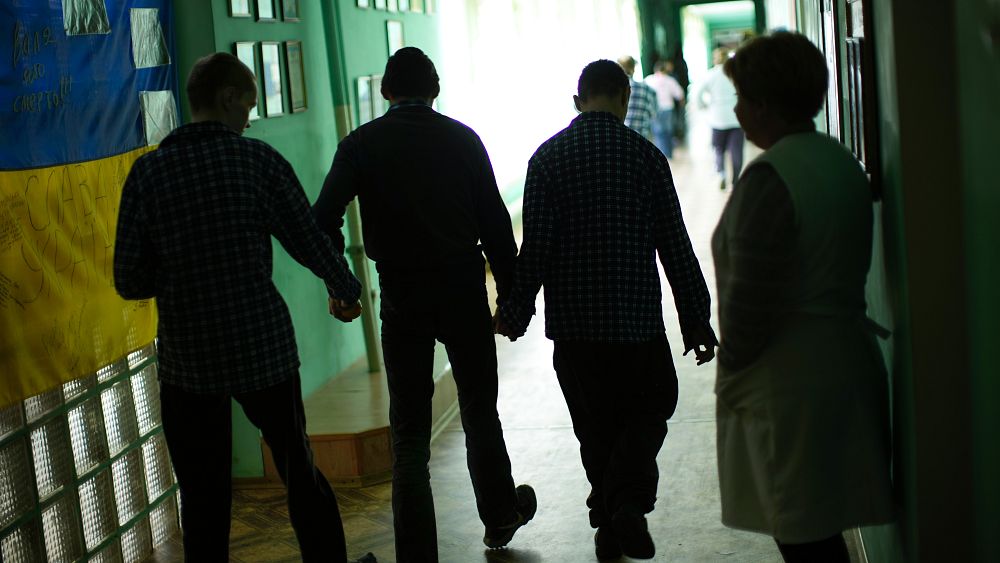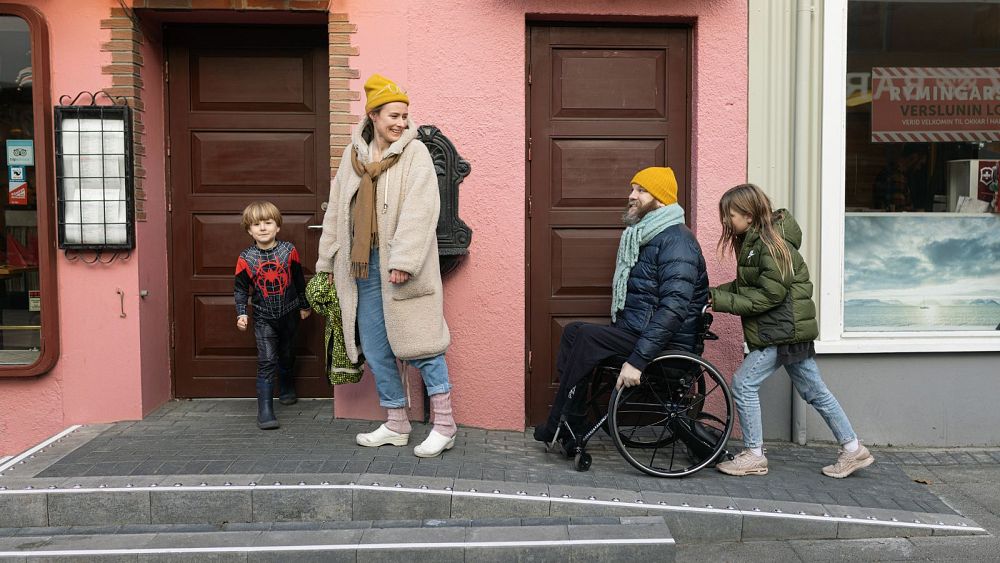- Wheelie's Newsletter
- Posts
- WHEELIEQUEER
WHEELIEQUEER
Breaking down barriers for Deaf and Disabled People
Hello! In this month’s edition of the WheelieQueer monthly newsletter, we discuss the effects of the war on disabled Ukrainians, a fire in the Rohingya refugee camp of Cox’s Bazar, and remember Ifti Nasim, “the fearless gay Pakistani poet”.

Ukraine, Pexels
THIS MONTH'S NEWS
On Human Rights Issues
New chapter of violence in Israeli / Palestinian territories
Early last month “at least six Palestinians [were] killed and 10 wounded in an Israeli army raid on the occupied West Bank city of Jenin,” the Guardian reports citing Palestinian officials.
“A fierce gun battle erupted in the crowded refugee camp on Jenin’s western outskirts on Tuesday afternoon after the Israel Defence Forces (IDF) mounted an operation to find the Palestinian gunman suspected of killing two Israeli brothers as they drove through the West Bank town of Huwara last week.”
What followed was a violent response from Israeli settlers living in the area, the Guardian further states, with around 400 people storming Huwara and three surrounding villages later that day, damaging homes, businesses, and destroying property and killing one man.
The escalation is just one example of the long history of violence that marks the region and is unlikely to be the last of its kind.
Important Read:
Fire in Rohingya refugee camp
After a devastating fire in the Cox’s Bazar refugee camp, an estimated twelve thousand Rohingya have been left without shelter.
The camp that houses more than a million Rohingya refugees was destroyed in the late afternoon at the beginning of March. Fires, so the report, are a frequent problem in Rohingya camps, “where people live in extremely cramped conditions in flimsy, bamboo-and-tarpaulin shelters”. The cause of the fire had not been definitely found as of a week after the blaze. No injuries or deaths were reported, but around 2000 shelters were destroyed, leaving thousands without protection.
With dwindling donations and an uncertain future, those who fled Myanmar in 2017 are still stranded today, with the camp’s situation worsening.
John Quinley, the director of Fortify Rights tells the Guardian: “The whole environment in the camps right now – whether fires, the cutting of rations, the ongoing security situation or threats towards women – the environment is really dire”.
Until new and better solutions are found on governmental and international levels, the life of the Rohingya in Bangladeshi camps is unlikely to change soon.
Shooting in Jehovah’s Witness hall in Hamburg
In early March, a shooter killed seven people, including an unborn child, and injured another eight in a Jehovah’s Witness hall in Hamburg, Germany.
The motives for the shooting are unknown. New investigations have revealed, however, that the gunman had been reported as mentally unstable by another member of his marksman shooting club, which, however, had not led to further police actions, the Norddeutscher Rundfunk reports.
German Senator Andy Grote described the attack as the “worst crime” in Hamburg’s recent history, the BBC reports, as German Chancellor Olaf Scholz describes the shooting as a "brutal act of violence”.
On LGBTQ+ Rights Issues
Uganda: New parliament draft could criminalise anyone identifying as LGBTQ+
The BBC reported last month, that a new bill set to be passed by the Ugandan parliament would effectively make saying that you identify as LGBTQ+ a criminal offence, punishable by up to 10 years in jail.
It is just one sign of the rising homophobia in the country. The law would also ban the funding and promotion of LGBTQ+ activities and threatens jail time to those who engage in a same-sex relationship or marriage. Consent, will not be allowed as a method of defence.
It is unclear if President Yoweri Museveni and his party (NRM) will back the bill that was drafted by the opposition.
“We've registered so many cases of violations [against the LGBTQ+ community]. We've seen so many cases of arrest, blackmail and extortion so this is going to increase," an activist told the BBC.
Same-sex relations are currently banned in more than half of African countries.
New law targeting Russian LGBTQ+ members
In November 2022 the Russian government (Duma) “unanimously voted to extend its ban on so-called ‘gay-propaganda’”. The updated law sees any promotion of homosexuality (including almost all media) as illegal, and sees heavy fines for anyone breaking it.
The bill was widely condemned by Western nations. The US Secretary of State Anthony Blinken, so the BBC, urged Russia to drop the bill and to respect the human rights and dignity of all people.
“Since the law was passed, Danya [a drag queen from Russia, interviewed by the BBC] has decided to leave Russia and move to France. He says that living in a country where it's illegal to "just be yourself" makes him feel afraid. "My hands are tied. I just don't have a choice anymore. Either I leave the country, or stay here and wait for it to get even worse. What's happening now - it's very frightening."
According to the BBC, the timing of the legislative is no accident and coincides with the launch of the country’s so-called special military operation against neighbouring Ukraine.
“Vladimir Putin says that Russia is not only fighting Ukraine on the battlefield, but also "Western" values. During a speech in the Kremlin to mark the illegal annexation of four Ukrainian regions, the president lashed out at the West and LGBT rights, calling them "pure Satanism".”
Many members of the LGBTQ+ community are now worried about when and against whom the revised law will be applied, as Russian legislation is notoriously vague, giving authorities the full rein to apply laws as they see fit.
Important Read:
Ifti Nasim: Poet and Pakistani LGBTQ+ trailblazer
Ifti Nasim was born on September 15th 1946 in Faisalabad, Pakistan and is thought of to be the first openly gay poet from the South Asian nation.
Nasim, dedicated his life and art to fighting for LGBTQ+ rights and its acceptance in the Muslim community, after he himself, had been bullied and ostracised for being openly gay.
“Aged 16, he was reading a politically charged poem of his at a protest against martial law when a soldier shot him in the leg. Nasim wrapped up the wound and eventually made it home, telling no one of the incident. His injury was eventually discovered, and he was bedridden for months which ruined his potentially promising career in classical Kathak dance,” The Pink News writes about him, painting his impressive character, even at a young age.
Nasim eventually moved to the US in his early 20s. In 1986 Nasim helped found Sangat (a US-based South Asian LGBTQ+ organisation), which provided support for queer South Asians, hence, giving back to the community who had embraced Nasim years earlier.
“Even with a growing career and tireless advocacy, Nasim devoted much of his time to writing. He released multiple books of poems – written in Urdu, Punjabi and English – that touched on the persecution of LGBTQ+ people and lives of queer people in Muslim countries.”
Nasim died in July 2011, but his lasting impact through the written word is still felt today.
On Disability Rights Issues
War against Ukraine: Disabled Ukrainians face abuse and neglect
It has been over a year since the war against Ukraine began. And war has also “torn through institutions caring for disabled people in Ukraine, drastically worsening living conditions and displacing thousands”.
Euronews reports about overwhelmed staff resorting to tying patients to their beds in order to stop them from self-harm, fewer resources and the added trauma of war.
It is both the increase in people needing help and the decreased number of staff that is overwhelming the already struggling institutions.
Eric Rosenthal the founder and director of DRI (Disability Rights International) tells Euronews about the catastrophic situations he witnessed over the past year. Telling the heartbreaking stories of children left to fend for themselves without the right support.
Interestingly, it is not an issue of money that the institutions face but rather a problem in leadership, Rosenthal further explains Euronews.
“‘A lot of money has come into institutions, while families of children with disabilities, who are in communities, live on the verge of poverty because of the war, […] They have no access to services, no access to medication… they are invisible and nobody supports them.’” Halyna Kurylo, the DRI director, explains.
Only with international help and the government’s support can the situation of those affected change and solutions be found.
Important Read:
Ramp Up Iceland
Entrepreneur Haraldur Þorleifsson, Icelander of the Year 2022, has recently launched the project Ramp Up Iceland, which aims to build 1600 ramps across Iceland.
Þorleifsson who was diagnosed with muscular atrophy disorder as a child, started the initiative after being unable to join his family at a shop as there was no wheelchair access.
“‘I started to think about the times I’ve waited outside places, isolated and alone,” Euronews quotes him.
So far the initiative has already built more than 450 ramps, hoping to complete as many as 1600 ramps over the coming three years. Most recently, a ramp was fitted to a gas station, making it the first one of its kind in Iceland. The project is funded by Þorleifsson himself, as well as private and corporate backers.
“Iceland's parliament - Alþingi - passed a law in 2012 which requires all new-builds to provide disabled access. However, the law is not retroactive, which means that it does not extend to revamping old buildings.”
Þorleifsson’s project’s aim is to tackle this gap in accessibility across Iceland.
Important Read:
Australian Airlines urged to improve treatment of disabled passengers
As reported by the Guardian, the chair of the disability royal commission of Australia has written to the Australian airline and airport chiefs about an improvement in their treatment of passengers and travellers with disabilities.
This letter comes after the commission heard several reports of people being dropped on the floor, limited access to safe ramps and discrimination against people relying on assistance dogs.
The royal commission’s insights come after a lawsuit by Tony Jones, who brought forward a complaint with the Australian Human Rights Commission after being turned away at the gate in Sidney. Just one example of a plethora of complaints and incidences raised over the last year.
You can read more about the personal stories of those affected in the Guardian article linked here.
What’s Next
We hope you enjoyed this month’s newsletter!
We’ll be back in two weeks with our monthly PIP/Disability News Newsletter.
In this month’s edition we’ll be answering more of your questions, and inform you about this month’s updates on UK disability news, as well as upcoming events and workshops.
So if you have any questions or suggestions for any of our upcoming newsletters or the work we do, you can find our socials and how to get in contact with us in the details below.
Best,
The WheelieQueer Team

WHEELIEQUEER
Breaking down barriers for Deaf and Disabled People
Want to get in contact with us? Message us here
Want more information on what we do? Find us here
Have a question for Jasper? Send it in here



